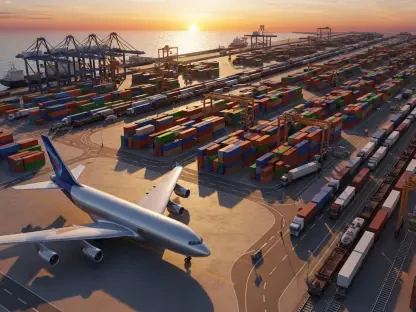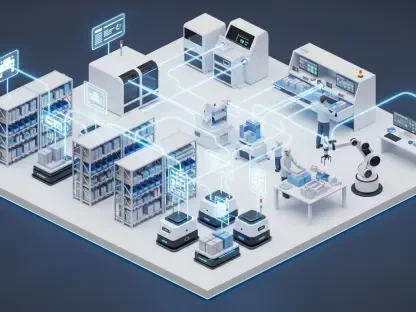As President-elect Donald Trump prepares to take office, one of the most scrutinized aspects of his economic plan is the implementation of proposed tariffs, which have significant implications for the trucking industry. With tariffs proposed at 25% across North America and harsher barriers against China, including a 60% tariff on Chinese goods and 10-20% on products from other countries, the industry is bracing for potential disruptions in the movement of goods. Economists and industry experts are delving into these potential impacts, emphasizing the need for strategic responses to mitigate the anticipated economic challenges.
Concerns Over Tariffs as Consumer Taxes
The Potential Economic Slowdown
One of the primary concerns voiced by the trucking industry is that tariffs could effectively act as consumer taxes. The additional costs imposed on imported goods would likely be passed down to consumers, leading to a slowdown in economic activity. This scenario could significantly impact freight sourced from critical trade partners such as Mexico and Canada, which are vital to the industry. Tariffs on goods from these countries could create price hikes, reducing the volume of goods transported and thereby affecting the trucking sector’s profitability.
Economists argue that imposing such high tariffs could hinder economic growth rather than stimulate it. Cliff Winston of the Brookings Institution pointed out that while the administration aims to curb imports significantly, the broader consequences could be detrimental. Reduced imports may lead to less overall economic activity, as businesses and consumers adjust to higher prices and limited product availability. This reduction in economic activity could, in turn, lower the demand for trucking services, which are a crucial component of the supply chain.
Monitoring Developments Closely
Given the potential for significant economic ramifications, the trucking industry has a vested interest in closely monitoring tariff developments. The unpredictability of the tariff implementation timeline and the potential for escalation add to the complexity. Industry stakeholders are advised to stay informed and be prepared for possible delays or changes in the tariff enforcement process. This vigilance is essential to navigating the uncertain terrain and preparing for any adverse impacts on operations and profitability.
The proposed tariffs have sparked discussions about possible exemptions for certain commodities. However, these exemptions do little to alleviate the industry’s overall concern. While some specific goods might avoid the tariffs, the broader impact on the market cannot be ignored. The consensus among industry experts is that tariffs, despite their intent to boost domestic production, could inadvertently slow down economic activity and, by extension, the trucking industry’s performance.
Balancing Tax Cuts and Tariff Impacts
Expert Insights on Economic Growth
Bob Costello, Chief Economist at the American Trucking Associations, emphasized that while tariffs may dampen the positive effects of tax cuts, a moderate improvement in the trucking environment could still be expected in 2025 compared to 2024. Costello’s insights highlight the delicate balance between the benefits of tax cuts and the potential drawbacks of increased tariffs. The industry must navigate these opposing forces while striving to achieve growth amidst economic uncertainties.
Economists have taken a cautious stance, recognizing that the Trump administration’s tariff threats are unlikely to be retracted. This unwavering position creates an atmosphere of economic uncertainty, necessitating strategic responses from industry leaders. Balancing the immediate impacts of tariffs with long-term opportunities for growth requires a nuanced approach. The industry must adapt to changing circumstances while leveraging the broader economic policies that could support its development in the long run.
Potential Exemptions and Strategic Responses
As President-elect Donald Trump prepares to take office, a key focus of his economic plan is the implementation of proposed tariffs, which carry significant implications for the trucking industry. These proposed tariffs are set at 25% across North America, with even harsher barriers against China, including a 60% tariff on Chinese goods and 10-20% tariffs on products from other countries. This has the trucking industry bracing for potential disruptions in the movement of goods. Economists and industry experts are studying these potential impacts carefully, stressing the need for strategic responses to manage the anticipated economic challenges.
The potential tariffs are more than just numbers; they represent a major shift in trade policy that could affect the cost of goods, supply chain logistics, and overall economic health. The trucking industry, which plays a crucial role in the transport of goods across borders, may experience increased costs and operational hurdles. As stakeholders analyze these impending changes, it becomes clear that comprehensive strategies will be necessary to navigate the challenging landscape that the new tariffs will create.









